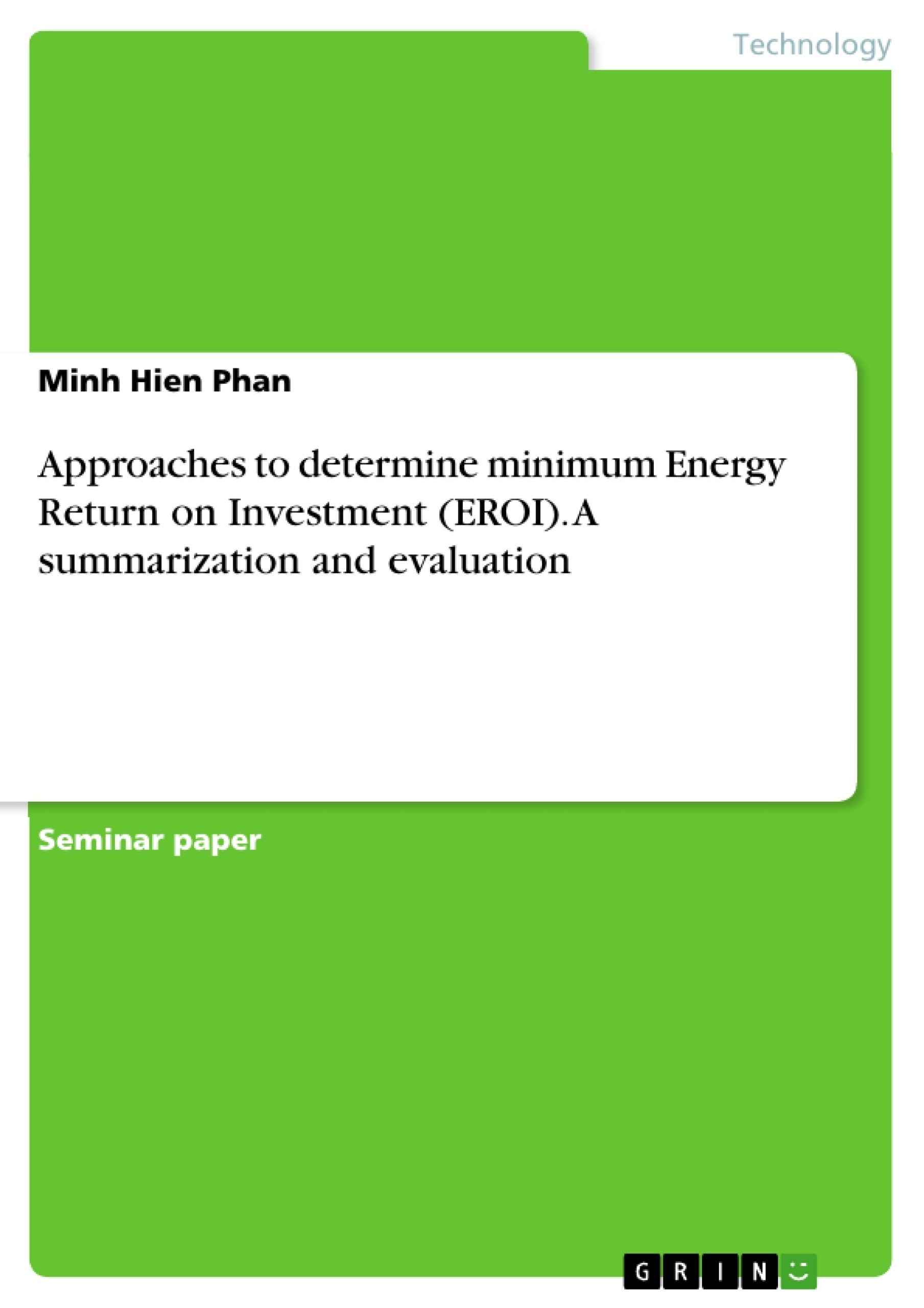This paper derives four major approaches from contemporary literature; furthermore, the difference in boundaries, and data requirement might indicate problems that should be subject to future researches. One of the biggest concerns of the contemporary generation is the so-called energy transition, i.e., the transitioning of the energy sector away from fossil fuels (FF) to more sustainable renewable energy (RE). In this regard, current discussions are surrounding the two main topics: firstly, whether and how such a transition can be economically profitable (or even feasible); and secondly, whether it would cause energy scarcity. Many scholars who concern themselves with the latter topic utilize the concept "Energy Return on Investment" (EROI) as a means to quantify the effect of the transition on the abundance of energy. Nevertheless, an EROI value on its own is hardly meaningful (except when it is smaller than 1:1, or higher than 50:1); scholars would be more interested in whether the EROI of RE has met or will meet a threshold value which would indicate its sufficiency to sustain the current economic growth and societal well-being, termed minimum EROI.
Inhaltsverzeichnis (Table of Contents)
- Introduction
- Theoretical background
- Energy Return on Investment - EROI
- Minimum EROI and its meaning
- Minimum EROI estimation approaches
- Methodology
- The oil-based approach
- The net energy approach
- The energy expenditure approach
- The "quality of life" approach
- Evaluation of the approaches
- The importance of boundaries
- The difference of data
- Conclusion
Zielsetzung und Themenschwerpunkte (Objectives and Key Themes)
This seminar paper explores the concept of minimum EROI and examines various approaches used to estimate this critical threshold value for energy sufficiency. The paper aims to provide a comprehensive overview of existing methodologies, highlighting their underlying assumptions, formulas, and limitations.
- The concept of Energy Return on Investment (EROI) and its significance in energy transitions
- Defining and understanding the concept of minimum EROI
- Analyzing different approaches to estimate minimum EROI, including the oil-based, net energy, energy expenditure, and "quality of life" approaches
- Evaluating the strengths and weaknesses of these approaches, focusing on the importance of defining boundaries and addressing data discrepancies
- Identifying potential research directions for future investigations related to minimum EROI estimation
Zusammenfassung der Kapitel (Chapter Summaries)
The introduction outlines the growing importance of understanding minimum EROI in the context of energy transitions. The paper emphasizes the need for a systematic review of existing estimation approaches due to their potential for misinterpretation and misuse in subsequent research.
Chapter 2 introduces the core concepts of EROI and minimum EROI, explaining their relevance in assessing the sustainability of energy sources. Chapter 3 delves into four prominent approaches for estimating minimum EROI, outlining their methodologies, assumptions, and underlying formulas.
Chapter 4 critically evaluates the different approaches, highlighting key differences in boundaries, data requirements, and potential limitations. This analysis provides a comprehensive overview of the strengths and weaknesses of each approach.
Schlüsselwörter (Keywords)
The paper centers around the concept of Energy Return on Investment (EROI), particularly the concept of minimum EROI. Key topics include energy transitions, renewable energy, fossil fuels, energy sufficiency, and the methodological challenges associated with estimating minimum EROI. The paper examines various approaches like the oil-based approach, net energy approach, and the energy expenditure approach, highlighting the importance of data consistency, boundary definitions, and the limitations of these approaches.
- Citar trabajo
- Minh Hien Phan (Autor), 2021, Approaches to determine minimum Energy Return on Investment (EROI). A summarization and evaluation, Múnich, GRIN Verlag, https://www.grin.com/document/1142377



